Akercocke guitarist/vocalist Jason Mendonca is, quite surprisingly given the band’s foreboding public persona in years gone by, easily one of the most engaging and affable interviewees we’ve come across in a fair while at Sentinel Daily. His band have released their first album in a decade, the superb Renaissance in Extremis, and he’s keen to have a chat enthusing about all aspects of the band and where they find themselves in 2017. And of course we’re more than happy to indulge him…
Are you pleased with the reception to the album now I’s been out for a little while? “Oh man, you know it’s been overwhelming! I’m absolutely stoked. It’s been such a resoundingly positive reception from the media and fans across the board. We couldn’t be more pleased”.
You’ve been doing this for a while now, but there’s been a big break between this and the last album (2007’s Antichrist) – were you worried that people may have moved on and perhaps left Akercocke behind? “Not really, no. I don’t want to sound arrogant, I don’t mean it to sound like that. But we’ve always been kind of a woodshed band, we just plod along and do our shit, and if anyone gets it, great, if they don’t then it doesn’t really matter. But what was really chuffing was that, in the build up to it all, when we rebooted the band, we had no idea if anyone would still be interested. But it became apparent through social media that there was still very much a hard core of fans there who’d been waiting for something. I’d been completely oblivious to that, and it was really touching, you know? So it really just gained momentum from there. It’s wonderful- really, really wonderful”.
So if you were oblivious to that fan presence, what gave you the impetus you needed to reboot the band. What made you say ‘come on, let’s do it!’? “I did a charity gig for Covan from Decapitated, about two years ago now. I hadn’t played the guitar for a long time. I got together with some dudes and played, and it just reminded me of how much I’d missed playing guitar, and making music, you know? (Drummer) Dave (Gray) had been making noises about putting the band back together but I’d always resisted, being a bit of a hard arse and being firmly of the mind that you should always move forward and not backwards. But when we eventually sat down and talked about it we realised that we’d moved on as people; the band would logically progress anyway. We would be doing something new in a sense, and that was really the tipping point. Fuck it, let’s just get back in the rehearsal room and see what happens…”
You hadn’t picked up a guitar in a while, you’re essentially starting from scratch at that point? “Well, yes. It takes a while to get the muscle memory back, and that’s still a work in progress (laughs). It was really the creativity part that had been lacking during my time away from music, so it was an interesting journey to get back into that mindset. Also it was fabulous to get back in the rehearsal room with old friends and play again, remembering how the group dynamic works and learning to play together again as a band. But do you know what? We know each other really well. Dave and I have been friends for over thirty years, I’ve known (guitarist) Paul (Scanlan) for about twenty five years, so it was remarkably easy and altogether just great fun”.
I was interviewing Frost from Satyricon recently and he said that they felt that if they were writing music to please anyone but themselves that would be the end for them artistically. Would you agree with that, given what you said earlier about the reboot being in part inspired by that group of fans you talked about? Or does the music have to please you as a band first and that’s all that matters? “Yes. Absolutely. That’s the whole point. The whole raison d’être behind Akercocke was that if the band didn’t exist, we’d still want to listen to it, you know? That’s one of the key driving points behind the band really. Keep making music that we find interesting, and stimulating as players, and if other people get it too that’s wonderful. But really it’s just some old gits in a rehearsal room doing what turns us on, you know?”
The music industry has changed almost beyond recognition since the last time you put an album out. “Yes it has”.
You’re back on the Peaceville label, but did you ever consider doing it all yourself this time? Or do you prefer to be on a label? “It was largely a practical and mechanical decision. I totally take your point, the industry has changed a lot, but I simply do not have the time to put into running a label. Peaceville have the mechanisms and the structure to be able to do all that stuff, and they do it very well. Oddly, going back to them was very easy as well. We parted on good terms, but I hadn’t seen any of them for fifteen years. We went up to their office with a proposal. Sat down with a cup of tea and said ‘look, we want to do this, what do you reckon?’ and they said ‘yes, sounds like a plan’. And it was that simple”
Which must have been a bit of a relief? “I wouldn’t say relief”.
By which I mean you didn’t then have to go and, after being turned down, go through the rigmarole of finding another label. “Ah, yes. It was great. Again there seems to have been – and I’m not alluding to anything esoteric here, because that would be bollocks – but there seems to have been a momentum behind this reboot, a kind of positive charge. I’m not being flippant, and I don’t take it lightly that we were able to go back to slot back into the label roster so easily, but what I particularly enjoyed about it was the way in which it was done. All that nonsense of the past with other labels, with negotiations and lawyers and all that crap, wasting time, just wasn’t present. It was done in a very pragmatic way”.
Let’s talk a bit about the album, rather than everything surrounding it… there’s an incredible variety of vocal stylings on the record. Do you have to put a lot of work in to do that, or does it come reasonably naturally to deploy the Mendonca voice as required in the studio? “I think there’s two parts to that. I’m naturally quite lazy as a person. I spend so much time and energy with kids, work and other stuff that I don’t really have the time to work at being a vocalist. But what I have noticed is that as I’ve got older my voice has changed, so doing the really extreme vocals has got harder and harder and it takes a lot longer to be able to deliver in that way. But to completely contradict what I just said (laughs) the way around that is practice. So the fact that we have a rigorous rehearsal schedule – we rehearse three times a week – helps a lot. But we put the vocals down on the album in one day. There were two days allotted to vocals. I went in the first day and recorded half an albums worth of songs. We came back the next day and just decided they were rubbish. We deleted them and started again. There’s been very much a utilitarian approach to the recording of this album. We haven’t been precious about anything. It’s been very much ‘let’s get something down that feels right’ rather than ‘lets be absolutely technically perfect’. That was very much the attitude to all the instrumentation on the record. It was all about capturing vibe rather than virtuoso performances”.
I’m interested you say that because to me it really does sound like the most natural record you’ve put out. The word ‘organic’ is overused, but it really does sound more natural than anything else you’ve done. “Thanks for saying that, I’m glad that you picked that up. There’s a couple of things that surround that… One was that the new material is not detuned at all. When we discussed rebooting, after recording five albums sounding like a dog locked in a coal shed – which is all well and good – I’ve actually got a reasonably high voice and we wanted to make an album that sounded good. The problem with most death metal is that it’s all detuned, and all the instruments are fighting for the same low-mid frequency space… we had the idea of putting all the instruments back into their natural tunings, to give them the space to breathe. And because we were two tones up that gave me the opportunity to use my voice in different ways. I’m back to my natural register. To go back to the organic thing, it was definitely there. ‘Let’s just get this done, and if it’s vibeing then that’s all that’s important’. That made for a really enjoyable recording process. I’ve never laughed so much recording an album as I did with this one”.
That approach certainly paid dividends. Stylistically the album is looser, too, isn’t it? I hear some quite distinct prog rock elements as opposed to just out-and-out metal. “Definitely. One of the things I’ve been saying to people is that we used to be a death metal band with tinges of prog, and now we seem to be a prog rock band with tinges of death metal (laughs)!”
Do you think exploring that avenue a bit more is the way forward for the band? “Mate, we’ve got a really mad idea for the next one, which we’ve already started discussing. I can’t make any promises that there will be any sort of logical lineage, or that we’re about to become Gentle Giant or Genesis any time soon”.
That’s probably good news, Mr Mendonca…


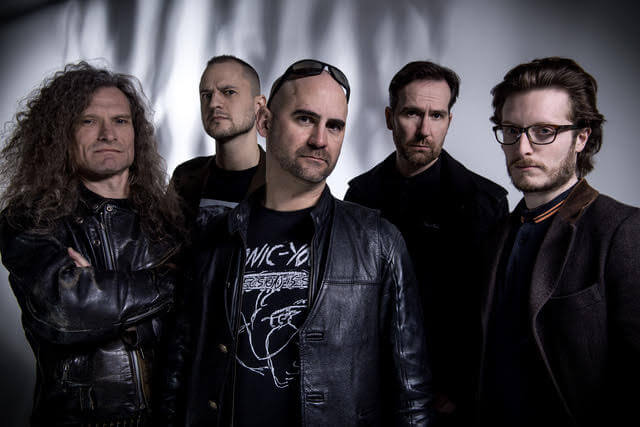
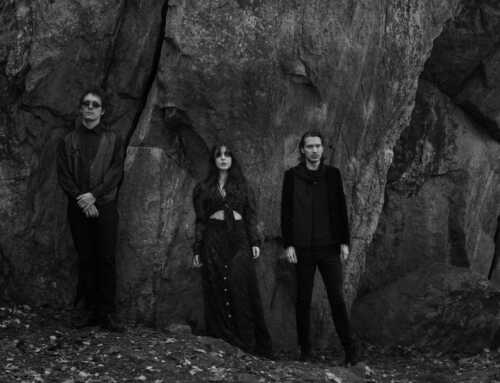
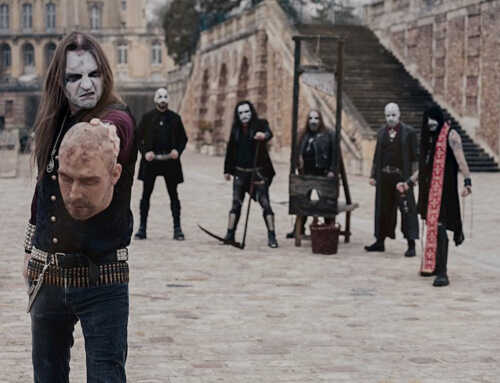
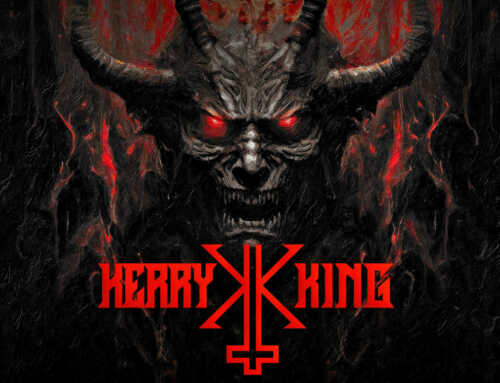
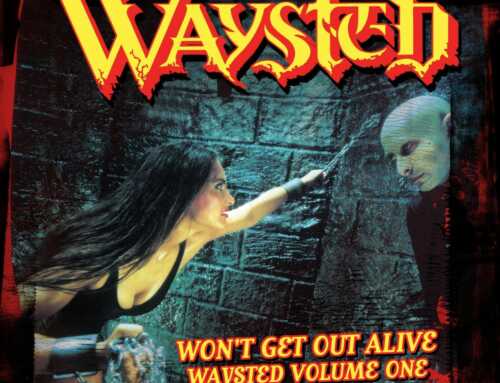
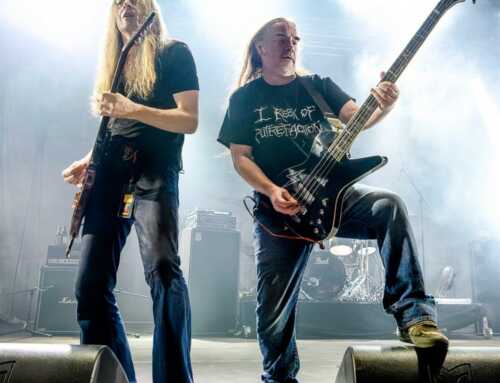
Leave A Comment